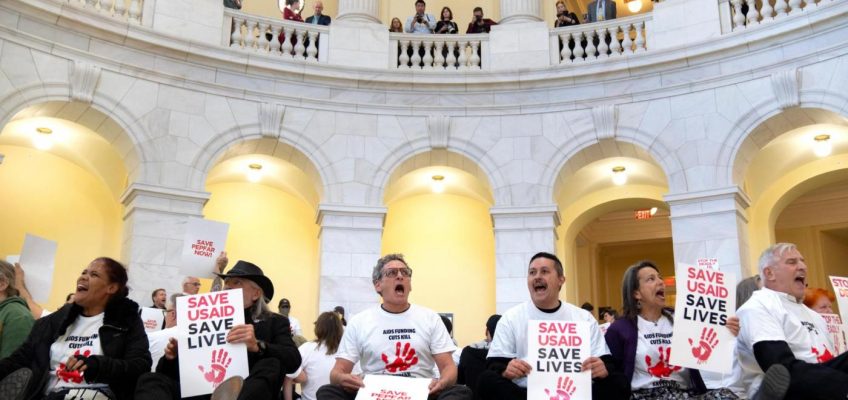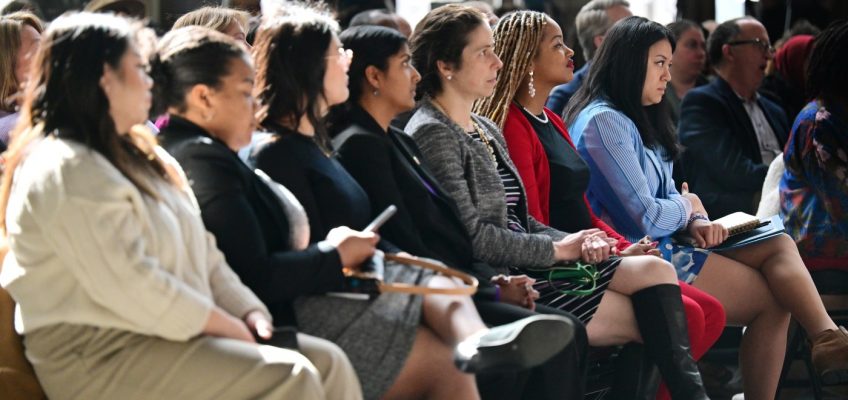Minnesota’s Republican congressional delegation all voted to approve the U.S. House’s budget proposal Tuesday night, a vote some state Republican legislators attempted to inform when they urged their federal colleagues to consider the expected harm to Minnesota from Medicaid cuts.
The House measure, which is designed to promote President Donald Trump’s agenda, includes $4.5 trillion in tax cuts and $2 trillion in reduced federal spending over a decade. Among the proposals in the budget to accomplish these tax breaks and spending reductions are proposed massive cuts to Medicaid and a potential gutting of the Affordable Care Act.
Last week, more than a dozen state Republican legislators sent a letter to the Republican congressional delegation — Reps. Brad Finstad, Tom Emmer, Michelle Fischbach and Pete Stauber — asking them to consider the proposed cuts of $880 billion to Medicaid and how they could affect low-income and disabled Minnesotans.
The letter — signed by Sens. Jim Abeler, Bill Lieske, Carla Nelson, Paul Utke, Mark Koran and Glenn Gruenhagen and Reps. Danny Nadeau, Joe Schomacker, Jeff Backer, Aaron Repinski, Joe McDonald, Dave Baker, Steve Gander and Bernie Perryman — said state Republicans would not be able to make up for the proposed cuts in the state’s budget.
“Minnesota stands a leader in providing access to care and containing costs and now stands vulnerable to unworkable funding reductions with some of what is being proposed in the federal budget,” the letter said. “Drastic reductions to Medicaid funding have the potential to impact the 1.4 million people we serve and place incredible pressure on our overall budget.”
Minnesota has 1.4 million people enrolled in Medicaid, including 650,000 children and 125,000 people with disabilities, according to 2023 data from the state Department of Health. The state Republicans wrote that the “only choice available” if the proposed cuts are passed is to raise local property taxes drastically or withdraw services.
The notice from state Republicans comes as the Legislature will be tasked with passing a budget with a $5 billion budget deficit projected by 2028. The Legislature must pass a budget by July to avoid a government shutdown.
The letter signed off with a request for the GOP House members in Washington: “Please remind our good leaders in Washington that simply cutting the budget is not going to take away our responsibilities to the aged, those with disabilities and mental health needs, children and the poor.”
The Minnesota Star Tribune said it sought comment Tuesday from Emmer, Stauber, Fischbach and Finstad. Their offices did not respond to the newspaper’s request.
Democratic U.S. Rep. Betty McCollum thanked the state Republicans on X on Monday, a day before the vote.
“Thanks to the 14 GOP Minnesota Legislators who recognize the damage the U.S. House GOP budget would cause,” she said. “It’s wrong to cut Medicaid — a healthcare lifeline for over a million Minnesota seniors, disabled, and children — to give more tax breaks to billionaires like Elon Musk.”
Sen. Majority Leader Erin Murphy released a statement Wednesday morning saying it is time for her GOP legislative colleagues to “get serious about the harm President Trump and his chosen crony are wreaking in Minnesota.”
“Every Republican sent to Washington to fight for Minnesota voted for this giveaway to the richest 1 percent, paid for by the rest of us,” she said. “It will be exceptionally harmful to our rural health care providers and farmers. President Trump counts this as a ‘win’ when we know it is a heavy loss for millions of people in Minnesota and across the country.”




